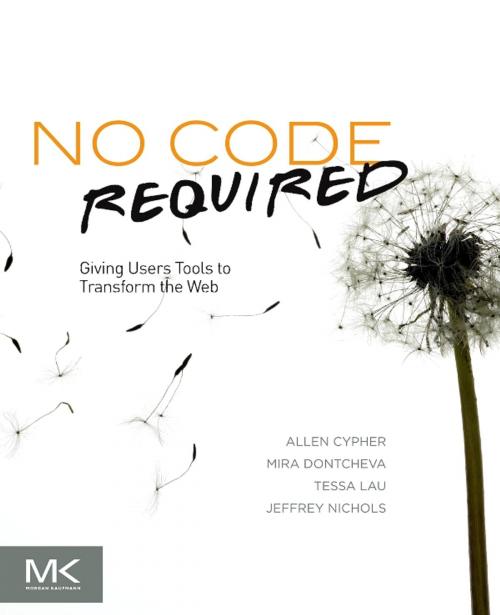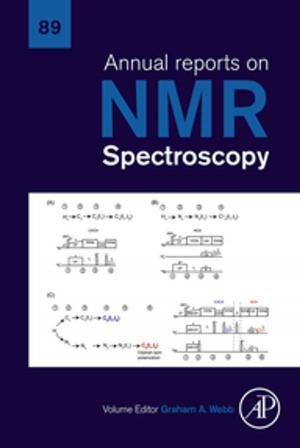No Code Required
Giving Users Tools to Transform the Web
Nonfiction, Computers, General Computing, Internet| Author: | Allen Cypher, Jeffrey Nichols, Mira Dontcheva, Tessa Lau | ISBN: | 9780123815422 |
| Publisher: | Elsevier Science | Publication: | May 21, 2010 |
| Imprint: | Morgan Kaufmann | Language: | English |
| Author: | Allen Cypher, Jeffrey Nichols, Mira Dontcheva, Tessa Lau |
| ISBN: | 9780123815422 |
| Publisher: | Elsevier Science |
| Publication: | May 21, 2010 |
| Imprint: | Morgan Kaufmann |
| Language: | English |
No Code Required presents the various design, system architectures, research methodologies, and evaluation strategies that are used by end users programming on the Web. It also presents the tools that will allow users to participate in the creation of their own Web.
Comprised of seven parts, the book provides basic information about the field of end-user programming. Part 1 points out that the Firefox browser is one of the differentiating factors considered for end-user programming on the Web. Part 2 discusses the automation and customization of the Web. Part 3 covers the different approaches to proposing a specialized platform for creating a new Web browser. Part 4 discusses three systems that focus on the customized tools that will be used by the end users in exploring large amounts of data on the Web. Part 5 explains the role of natural language in the end-user programming systems. Part 6 provides an overview of the assumptions on the accessibility of the Web site owners of the Web content. Lastly, Part 7 offers the idea of the Web-active end user, an individual who is seeking new technologies.
- The first book since Web 2.0 that covers the latest research, development, and systems emerging from HCI research labs on end user programming tools
- Featuring contributions from the creators of Adobe’s Zoetrope and Intel’s Mash Maker, discussing test results, implementation, feedback, and ways forward in this booming area
No Code Required presents the various design, system architectures, research methodologies, and evaluation strategies that are used by end users programming on the Web. It also presents the tools that will allow users to participate in the creation of their own Web.
Comprised of seven parts, the book provides basic information about the field of end-user programming. Part 1 points out that the Firefox browser is one of the differentiating factors considered for end-user programming on the Web. Part 2 discusses the automation and customization of the Web. Part 3 covers the different approaches to proposing a specialized platform for creating a new Web browser. Part 4 discusses three systems that focus on the customized tools that will be used by the end users in exploring large amounts of data on the Web. Part 5 explains the role of natural language in the end-user programming systems. Part 6 provides an overview of the assumptions on the accessibility of the Web site owners of the Web content. Lastly, Part 7 offers the idea of the Web-active end user, an individual who is seeking new technologies.
- The first book since Web 2.0 that covers the latest research, development, and systems emerging from HCI research labs on end user programming tools
- Featuring contributions from the creators of Adobe’s Zoetrope and Intel’s Mash Maker, discussing test results, implementation, feedback, and ways forward in this booming area















